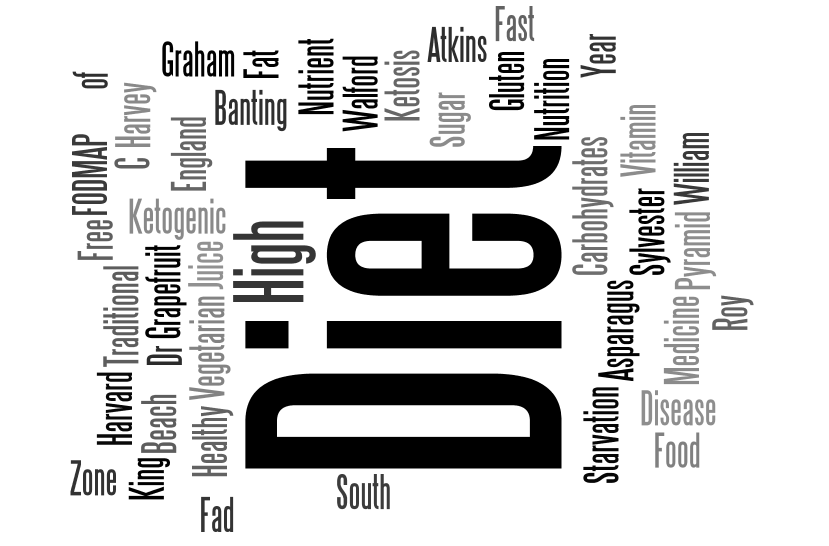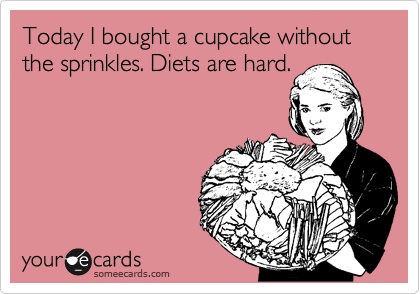IT AIN’T OVER TILL THE FAT LADY… EATS?
Study On Diets and How They Coincide with Human Development
By: Tam, 2005
An order of French fries, onion rings, one cheese-coated hamburger, a chili coated hot dog and two soft drinks, please. It’s the dinner of champions but not really.
Across the world different cultures are eating their traditions – everything, from European stuffed pig intestines to Chinese spontaneous sea laver, but in United States, there’s a big loss in heritage and nutrition, matched only with a gain in weight.
First off, an ability to talk about eating food requires a lone definition of what it means to eat. As in, eating food is also called a diet. In its traditional form, a diet is a habitual way of living – like always vegging in front of the TV on a Saturday night. But obviously we’re talking about the effects of food on the body in this article, so a diet can also mean the decision to consume, or not consume, a whole bag of chips in front of the TV. For the sake of this write up, diet is whatever you regularly eat – not counting your habits.

A food diet can mean an adherrence to a list of edibles designed to deal with allergens, illness, functionality, performance, and weight. And then there are the fad diets where either you condense all your desperation and hopes into short and punishing amounts of time restricting everything you love to eat. Or, a fad diet can be where you attempt a new long-term food regime for similar fadish idyllic outcomes.
Possibly the urge to diet is more of a cultural desire effected by environment and time. Dr. Alexandra Jaffe of the Department of Anthropology and Sociology at the University of Southern Mississippi wrote, “Dietary choices are connected to social identities. Changing a diet can amount to a change in social identity. People interpret dietary choices as attitudinal choices.”
With so many diets to choose from, most people are willing to take a chance on fad dieting. Popular diets, like the Atkins routine dramatically cut down carbohydrates while the Paleo diet recommends eating high quantities of fat to lose weight. Eating a ton of fat may not be everyone’s vision towards a healthy image but at the very least, a handful of studies have been able to prove a high fat diet can reduce seizures in epileptics – turning a fad diet into a diet for illness.
If you’re not into counting bread crumbs or fat intake, there’s always something else. Another diet to think about, touts its ability to lengthen a lifespan up to 120-years. All anyone has to do is restrict calorie intake and double up on nutrients, for the rest of their life.
The role of food and social development dates humanity. Cavemen hunted and ate unprepared food. An era after, man discovered agriculture. After agriculture, the role of food gets delicously complicated. Society developed more prevalent and picky tastes, which opened doors to the business of turning food into a processed commodity.
Unsurprisingly, in 2003, the World Health Organization publicly blamed processed food for generating an increase in health problems beginning with cardiovascular diseases and high blood pressure to strokes, type II diabetes, cancer, and IBD. Jan Larsen, a dietician for dietitian.com warns about the importance of watching what you eat. Besides binging out on processed foods, Larsen says fad dieting isn’t all that good for you either.

Realistically, you don’t put on weight overnight so the answer to slimming down will require time and reasonable nourishment, Larsen said. The human body relies on only six nutrients in order to properly develop and function: water, vitamins, minerals, proteins, fats, and carbohydrates. Before dieting, Larsen suggests you talk to a doctor and a dietician.
You too, can loose 30 pounds in three months using the Atkins Diet!
Dr. Robert Atkins received his medical degree from Cornell University in 1955 and began writing a series of books about dieting. He developed a diet which recommends spending the first 12-days in something called ketosis. A form of homeo-stasis, or in laymen’s terms – let your body starve and eat itself. The goal of the diet is to let your body run out of carbohydrates to burn so it begins to use unwanted stored fats for energy, dissolving a reasonable amount of weight.
The Atkins Diet manipulates the recommended daily intake of 300 carbohydrates. For the first two-weeks, you are allowed to consume only 20 carbohydrates a day. A daily meal would look like a single slice of bread, which contains 15 carbohydrates, and a can of tuna, which contains only five. Larsen calls the carbohydrate diet, the starvation diet. She recommends taking supplements and vitamins to maintain the body’s healthy functions during the first couple of weeks. Afterwards, you’d gradually work up to an ideal balance that meets your target weight.
The Atkins Diet should only be used in extreme cases of obesity, Larsen recommends. Her website, addresses an issue that occurs involving the depletion of glycogen, or glucose. “The problem with these diets is that after the first few days, body stores of glucose are depleted, the body turns to the only other source of glucose in the body which is lean muscle tissue or organs and muscles,” said Larsen, “Starvation effects all persons the same. The difference is how much stored glycogen and lean muscle tissue does the person have to lose before dehydration or death occurs.”
Full disclosure, this writer did the Atkins diet for one full month, intermingling daily cardio, in 2002. Depoprovera and chocolate hostess donuts packed an unnatural amount of weight on my frame. It was difficult to stick to the program but I did lose roughly 25 pounds in one-month and never gained it back. I also didn’t touch another package of chocolate donuts.
The secret to a long life has been unlocked with the 120-Year-Diet!
The late Dr. Roy Walford, M.D., a graduate from the University of Chicago and professor of pathology at the University of California Los Angeles, said his diet not only helps you melt the pounds away, but also can extend your life by at least a decade. Dr. Walford researched nutrition in labs for more than twenty-five years. He studied groups of mice, regulating their diets with nutrients, lengthening their lives as a result. Ambitiously, he named his diet discovery the “120 Year Diet.” The key to the diet, according to Walford, is the younger you begin the “120 Year Diet” plan, the more amount of years you could possibly live.
The structure of Dr. Walfords 120 Year plan originated from the Biosphere Project, which he headed up in 1992. He and a team of young scientists locked themselves into a self-serving environment to live off nature. The group grew and prepared their own food, however only a few crops actually survived so the team ended up going hungry, resulting in a lot of lost weight while managing to survive off a shortage of food packed with nutrients.

The president of the Cryonics Institute, Ben Best said he thinks the diet is nutritionally sound, except for the rapid weight loss. “The greatest danger in excessively rapid loss of weight is potassium depletion and damage to and loss of heart muscle, leading to cardiac arrhythmias. Cardiac arrhythmias have been a major cause of death among anorexics and among dieters who used liquid protein diets,” wrote Best.
During the Walford biosphere experiment, women lost 10 percent of their body mass while the male particpants lost 18 percent. Interestingly enough though, the group did not show any actual signs of starvation. They appeared to be nutritionally healthy. Walford’s diet does incur rapid weight loss but there’ve been no reports of severe health problems from the diet and at least two people, Walford wrote, have lived passed 112-years-old. Dr. Walford only live to 80-years-old.
Want to lose weight and look great and eat as much as you want?
The high fat Paleo diet, also known as the ketogenic diet, is a variation of the low carbohydrate diet. Simply summarized, foods high in fat are acceptable to consume. This diet is controversial though because of the high fat content. It was covered by the BBC for causing atherosclerosis, heart disease, and poor memory. On the other hand, this diet has done wonders for people with epilepsy. Just like the carbohydrate diet, this diet tricks the body into thinking that it’s starving, creating high levels of ketones that are known to suppress seizures. According to the British Epilepsy Organization, if administered properly, epileptic patients can successfully control up to 90 percent of their seizures even without medication. Unfortunately, at this point, no one understands how the diet helps epileptics. The ketogenic diet can have some rough side effects but if used properly can benefit epileptics. Getting on this diet for any other reason is a risk to health more than a benefit.
The very first possible obesity diet traces back to 1087 AD. Apparently, the King of England had an obesity issue before he took the throne. The story is William the Conqueror was too heavy to ride his horse so he wallowed in bed and went on a strict alcohol, but no food, diet. It is unclear if he lost weight or if he possibly knew what he was doing, but it is documented that he did ride again.

The period when society began to diet for weight issues is unclear. Documentation is more throughly available after the 1800s because this is when medicine began to develop concrete scientific evidence for how the body worked. Until the last century, people only understood physical associations like getting skinny when they didn’t eat. Scurvy, for instance, is a curable disease characterized by bleeding soft tissue like gums, a pale complexion and severe depression. For centuries, the disease plagued sailors at sea after they ran out of vegetable and fruit rations. It took hundreds of years before people finally realized the disease was due to a simple lack of vitamin-c.
Moving forward to the1800s, when society saw a boom in medical documentation, diet based nutrition began to appear. One of the first people to publicly combine ideas of religious fervor, food choices, and health was an American reverand named Sylvester Graham. Graham, a Presbyterian minister, preached how the path to salvation was through restraint. By restraint, the minister and creator of the Graham cracker, meant a lifetime strict diet of vegetables, no stimulants like coffee or tea, abstinence, and to bathe. Graham is considered the beginning of western vegetarianism not only because of the veggie diet he advocated, but for the major role he played in founding of both the British Vegetarian and American Vegetarian Societies in 1847.
While on the topic of foundations of nutritional knowledge, Dr. Atkins didn’t exactly invent the carbohydrate diet. He was just a smart, well-read doctor, and businessman. Cutting down carbohydrates was actually an idea leant from William Harvey, an English medical genius of the 1600s from Cambridge University and from William Banting, an Englishman that tried the diet, lost a lot of weight, and wrote his results in 1869’s, “Letter of Corpulence.” A Summarizationof the early carbohydrate diet.
“Few men have led a more active life—bodily or mentally—from a constitutional anxiety for regularity, precision, and order, during fifty years’ business career, from which I had retired, so that my corpulence and subsequent obesity were not through neglect of necessary bodily activity, nor from excessive eating, drinking, or self indulgence of any kind, except that I par took of the simple aliments of bread, milk, butter, beer, sugar, and potatoes more freely than my age required, and hence, as I believe, the generation of the parasite, detrimental to comfort if not really to health.”
Today, science has seen a great amount of growth in medical and nutritional understanding. Our era’s knowledge affords the consumer culture of fad diets to no end. Information and food are refined, mass produced and easily accessible. And even though we don’t need to hunt, plant, and prepare food the old fashioned way, we still have to spend time researching and looking for wholesome stuff to consume.
There are numerous diets to choose from today – the grape fruit diet, south beach diet, asparagus diet, zone diet, the Atkins Diet, the Paleo ketogenic diet, or the 120-Year Diet. But, be warned. Harvard’s Nutrition Source, from The School of Public Health says barley any fad diet will keep the weight off for more than a couple of months. The best way to go about losing weight is to take small steps, stay active and eat a low-calorie diet based on the pyramid food pattern. In addition, keep an eye on portions. Watch out for restaurant portions served two to three times the amount recommended. Dieting can work but only under the traditional premise. So whatever diet you choose, keep what you eat variant, nutritional, and most importantly, a way of life.


